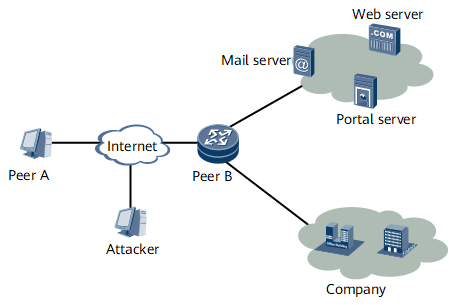Overview of PKI
Definition
The Public Key Infrastructure (PKI) is a framework that consists of a collection of protocols and cryptographic algorithm suites that authenticates the device that attempts to establish IPsec tunnels between each other.
PKI uses a sum total of the hardware, software, people, processes and policies along with the asymmetric cryptography technology to facilitate the creation of a digital identity, authentication and secure communication between two communicating end parties.
Purpose
With the development of e-commerce, online banking, and online securities transaction, Internet security becomes increasingly important. Certain people may intercept the plain-text data in applications and launch man-in-the-middle attacks.
In an IPsec VPN, peers are authenticated using pre-shared keys or certificates. A pre-shared key is the key configured on both devices. When one end checks that its key is the same as the key of the other end, they can set up a connection. This authentication mode is easy to configure. On the network deployed with a large number of devices, the pre-shared key needs to be re-configured on all devices when a new device is added to the network. As a result, the configuration workload increases exponentially and is easy to make errors.
To implement authentication on a wide range of devices and reduce middleman attacks, certificates can be used for user authentication in large VPNs. Peers first apply for certificates from the Certificate Authority (CA). Before establishing a VPN, peers attempt to authenticate each other's certificates. The connection between the peers can be established only if both certificates have been authenticated. This effectively prevents middleman attacks.
Benefits
- PKI is a secure channel for communication.
- PKI offers a variety of services like authentication, integrity protection, confidentiality and access control.
- PKI offers a scalable method to secure networks and simplify the deployment of network infrastructures by enabling security features, including IPsec, Secure Shell (SSH), Secure Socket Layer (SSL) and so on.
- PKI offers a large scale security compared to the traditional form of authentication like: username and password.
